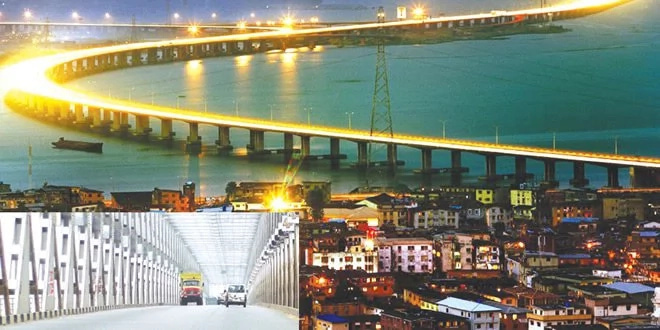The House of Representatives on Thursday explained its decision to approve the $5.5bn loan request by President Muhammadu Buhari.
It said lawmakers had confidence in Buhari to spend the money judiciously to ensure that the country’s economy did not relapse into recession again.
The House had approved the loan on Tuesday, at its plenary presided over by the Speaker, Mr. Yakubu Dogara.
The Chairman, House Committee on Media and Public Affairs, Mr. Abdulrazak Namdas, while speaking on Thursday, cited the Mambila Hydro-Power project as one of the projects that would benefit from the loan.
He said, “We trust the President to keep to his word to spend the money for the purposes he made the request.
“We are out of recession; some say technically. But, if we do not want to go back into recession, we have to spend on critical sectors of our economy.”
Namdas spoke just as the House called for adequate funding of the Lagos-Ibadan Expressway and the 2nd Niger Bridge in the 2018 budget to ensure their early completion.
In a resolution the House passed in Abuja, lawmakers also asked the House Committee on Works to investigate the exact nature of the funding method used by the Federal Government for the two projects.
In a motion moved by a member from Plateau State, Mr. Solomon Bulus-Maren, the House specifically sought a clarification on whether the government was funding the projects by concession arrangements or through full budgetary contracts.
Bulus-Maren noted that the clarification had become necessary because of the “strategic economic importance” of the projects, which required that they must be completed urgently.
He recalled that at one point, it would appear that the government was on the Public Private Partnership path, while in another breath, it would take over the projects by full budgetary allocations.
For instance, he said in the early stages, the Nigeria Sovereign Investment Authority “had spent about N18bn on the projects.”
Bulus-Maren also informed the House that even when the government opted for direct funding at some point, the money would lie idle; a reason the National Assembly slashed some of the funds in the 2017 budget.
However, he said the slashed funds were later returned through virement.
But, the Chairman, House Committee on Works, Mr. Tobi Okechukwu, while giving some insights, told the House that though the Lagos-Ibadan Expressway would appear to be under concession, “it is not working.”
He explained that the failed concession meant that the administration of President Muhammadu Buhari had to resort to direct interventions through budgetary allocation.
As for the 2nd Niger Bridge, Okechukwu stated that no concession arrangement had been signed by government.
Another member of the works committee, Mr. Mohammed Sani-Abdu, said there was indeed a concession arrangement on the Lagos-Ibadan Expressway initially, but that it later failed.
“What happened was that when the government was meeting its own obligations on the concession, the concessionaire wasn’t. When the government stopped the arrangement, the company (Bi-Courtney) went to court,” he added.
Sani-Abdu stated that the Minister of Power, Works and Housing, Mr. Babatunde Fashola, had to “bulldoze” his way by insisting that government should fund the project while the case progressed in court.
He added, “So, we may say that the situation of the Lagos-Ibadan Expressway is better off than the 2nd Niger Bridge, where no binding contract has been signed.
“In 2016, the sum of N14bn was put in the budget for the bridge, but no work started because of lack of a contract. In 2017, it was N10bn. The government has to make up its mind on what exactly we want to do about the completion of these projects.”
The motion was later passed in a majority voice vote at the session, which was presided over by the Deputy Speaker, Mr. Yussuff Lasun.
PUNCH














